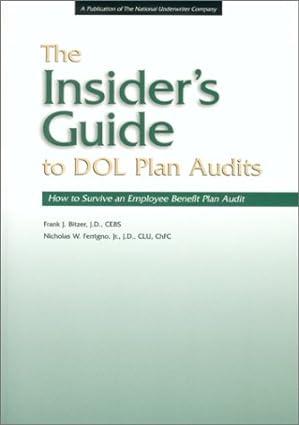Question
A, B and C decide to form a partnership for the purpose of developing real property. A and B are wealthy individuals, with no particular
A, B and C decide to form a partnership for the purpose of developing real property. A and B are wealthy individuals, with no particular real estate experience. C is an experienced developer. The parties agree that A and B will each contribute $1,000,000 to the venture, and that C will contribute his expertise. What tax consequences will result from formation of the venture under each of the following alternatives?
(a) In exchange for cash contributions of $1,000,000 a piece, A and B each receives 40% interest in the profits, losses and capital of the venture. In exchange for his future services, C receives the remaining 20% interest in profits, losses and capital.
(b) In exchange for their cash contributions, A and B each receive a 50% interest in capital and losses. Profits of the venture are divided 40% to A, 40% to B, and 20% to C.
(c) What if in (a), instead of contributing cash, A and B jointly contribute a piece of raw land that they have held for investment for several years. The property is worth $2,000,000, and it has a basis of $100,000.
(d) Would your answer to part (c) differ if A and B form a partnership in Year One, and admit C as a partner in Year Three?
Step by Step Solution
There are 3 Steps involved in it
Step: 1

Get Instant Access to Expert-Tailored Solutions
See step-by-step solutions with expert insights and AI powered tools for academic success
Step: 2

Step: 3

Ace Your Homework with AI
Get the answers you need in no time with our AI-driven, step-by-step assistance
Get Started


